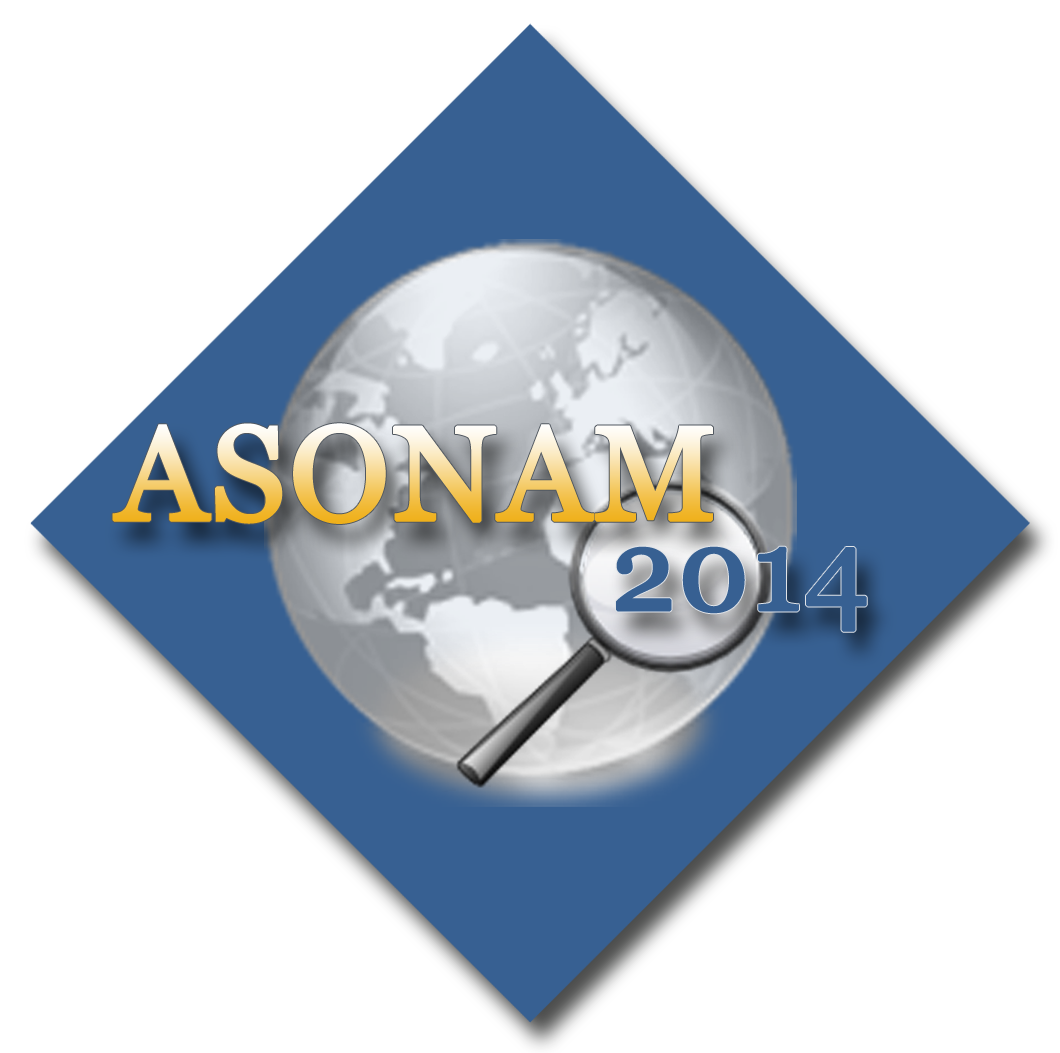The IEEE/ACM International Conference on Advances in Social Network Analysis and Mining (ASONAM) provides a premier interdisciplinary forum to bring together researchers and practitioners from all social networking analysis and mining related fields for presentation of original research results, as well as exchange and dissemination of innovative, practical development experiences. Researchers, practitioners and developers are invited to submit demo proposals to ASONAM 2014. The topics include, but not restricted to, the following:
• Anomaly detection in social network evolution
• Application of social network analysis and mining
• Community discovery and analysis in large scale online/offline social networks
• Connection between biological similarities and social network formulation
• Contextual social network analysis and mining
• Crime network analysis
• Crowd sourcing
• Cyber anthropology
• Dark Web
• Data models for social networks and social media
• Data protection inside communities
• Economical impact of social network discovery
• Evolution of communities/patterns on the Web and in large organizations
• Impact of social networks on recommendations systems
• Incorporating social information in query processing and query optimization
• Information acquisition and establishment of social relations
• Influence of cultural aspects on the formation of communities
• Large-scale graph algorithms for social network analysis
• Misbehavior detection in communities
• Migration between communities
• Multi-actor/multiple-relationship networks
• Multi-agent based social network modeling and analysis
• Open source intelligence
• Pattern presentation for end-users and experts
• Personalization for search and for social interaction
• Political impact of social network discovery
• Privacy, security and civil liberty issues
• Recommendations for product purchase, information acquisition and establishment of social relations
• Scalability of social networking/search algorithms
• Social and cultural anthropology
• Social geography
• Social psychology of information diffusion
• Spatial/knowledge networks
• Statistical modeling of large networks
• Trust networks and evolution of trust
• Visual representation of dynamic social networks
Each accepted demo is required to have a poster and demonstrate during the demo sessions. ASONAM 2014 will provide space and standard equipment (PC and Internet connection) at the conference venue.






